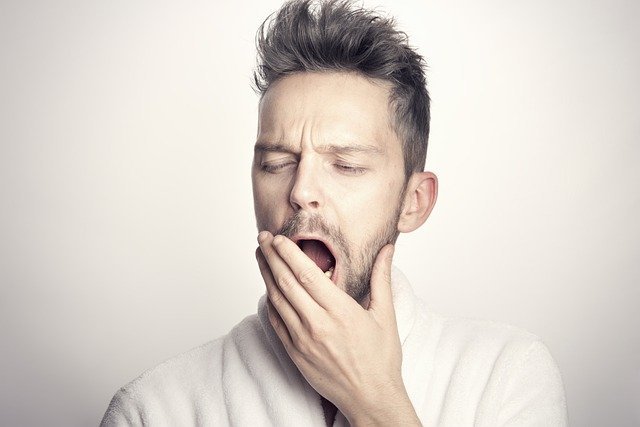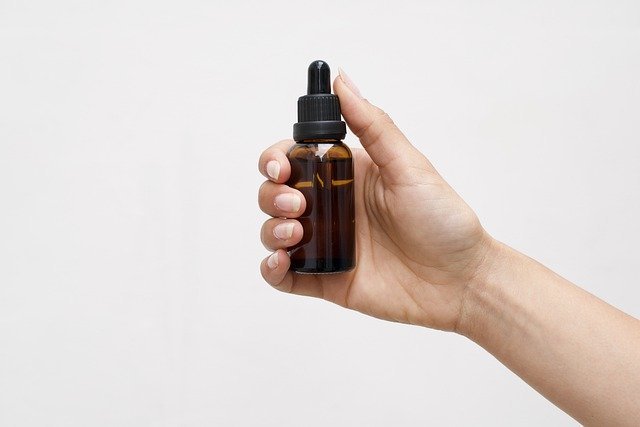
The Intriguing Relationship Between CBD and Sleep: Why Does CBD Keep Me Awake?
Cannabidiol, commonly known as CBD, has gained immense popularity in recent years due to its potential health benefits.
From pain relief to anxiety reduction, CBD is being hailed as a versatile supplement. However, an intriguing aspect that baffles many is its effect on sleep.
While some users swear by CBD’s sleep-inducing properties, others find themselves wide awake.
This article delves into the science behind CBD and explores why it might keep you awake.
Why Does CBD Keep Me Awake?
CBD, or Cannabidiol, interacts with the endocannabinoid system in the brain, which regulates various physiological processes including sleep. In some cases, CBD can have an energizing effect, particularly in low doses, due to increased protein synthesis in the brain and its interaction with other cannabinoids and terpenes. However, the effects of CBD on sleep are multifaceted and can also be influenced by the dosage, the source and quality of the CBD product, as well as individual factors such as metabolism, body weight, and lifestyle. Some individuals find that taking CBD later in the evening keeps them awake, while others use it successfully as a sleep aid. It’s important to experiment with different dosages and consult a healthcare professional to understand how CBD affects your sleep patterns.
Understanding CBD
What is CBD?
Cannabidiol, commonly referred to as CBD, is one of the many cannabinoids found in the cannabis plant, accounting for up to 40% of the plant’s extract. There are over 60 known cannabinoids, but CBD and THC (tetrahydrocannabinol) are the most prominent.
CBD is often lauded for its potential therapeutic effects, which can include pain relief, reducing anxiety, and alleviating symptoms of various disorders. Unlike THC, CBD is not psychoactive, which means it does not produce the “high” that is typically associated with cannabis use.
This makes CBD an attractive option for those who are looking for relief from symptoms without the mind-altering effects of marijuana or certain pharmaceutical drugs.
How Does CBD Affect the Brain?
CBD interacts with the brain primarily through the endocannabinoid system (ECS), a complex cell-signaling system that plays a role in regulating a range of functions and processes including sleep, mood, appetite, and pain. The ECS comprises receptors, enzymes, and endocannabinoids, which are similar to cannabinoids but are produced by your body.
CBD does not bind directly to the main receptors of the ECS, known as CB1 and CB2, in the way that THC does. Instead, it influences the ECS to use its endocannabinoids more effectively. For instance, it can inhibit the absorption of anandamide, a neurotransmitter that regulates pain, thereby increasing levels in the bloodstream and reducing pain sensations.
Furthermore, CBD can also affect non-cannabinoid receptors, such as the serotonin receptor 5-HT1A. By influencing this receptor, which plays a role in mood regulation and anxiety, CBD can have anti-anxiety effects and contribute to mental well-being.
Interestingly, CBD’s interaction with the ECS and other receptors can have both calming and energizing effects on the brain. The outcome often depends on the dosage, with lower doses tending to be more stimulating, and higher doses generally being more sedating.

Related: Why Does CBD Burn My Throat?
CBD and Sleep
The Paradox of CBD’s Effects on Sleep
The relationship between CBD and sleep is intriguing and somewhat paradoxical. CBD can either promote wakefulness or induce sleep, and this dual nature is influenced by various factors:
- Dosage: The amount of CBD consumed plays a significant role in its effects on sleep. Lower doses tend to have a stimulating effect, while higher doses are more likely to promote sleep.
- Individual Differences: People’s bodies and brain chemistry are different. Factors such as metabolism, genetic makeup, and sensitivity to cannabinoids can influence how CBD affects an individual’s sleep.
- The Source and Quality of CBD: The origin of the CBD, the extraction method, and the purity of the product can also impact its effects. For example, full-spectrum CBD contains other cannabinoids and terpenes that can alter its effects compared to CBD isolate.
The Science Behind CBD Keeping You Awake
CBD’s ability to promote wakefulness can be attributed to its interaction with the brain and the endocannabinoid system. One of the ways it does this is by increasing protein synthesis in certain parts of the brain, which can lead to increased alertness and wakefulness.
Additionally, CBD doesn’t work in isolation. It can interact with other cannabinoids like CBG (Cannabigerol) and terpenes such as limonene. Terpenes are aromatic compounds found in various plants, including cannabis, and can have their own set of effects on the body. For instance, limonene is known for its uplifting properties. When CBD is used in conjunction with compounds like limonene or CBG, it can enhance its stimulating effects.
Furthermore, CBD influences various neurotransmitter systems. For example, at low doses, it can increase dopamine levels, which is a neurotransmitter associated with alertness.

Understanding CBD
CBD as a Sleep Aid
In contrast to its stimulating effects at lower doses, CBD can act as a sleep aid when consumed in higher doses. One of the reasons for this is its anti-anxiety properties. Anxiety is a common cause of insomnia and sleep disturbances, and by alleviating anxiety, CBD can promote more restful sleep. Additionally, CBD’s interaction with neurotransmitter receptors, such as the serotonin and GABA receptors, can have a calming effect on the central nervous system, which is conducive to sleep.
There is a growing body of research supporting CBD’s effectiveness as a sleep aid. For instance, studies cited by the Sleep Foundation indicate that CBD can effectively decrease symptoms of insomnia and improve sleep quality. It’s important to note that while research is promising, more studies are needed to fully understand the mechanisms through which CBD affects sleep.
Personal Experiences and Anecdotes
Anecdotal evidence also plays a significant role in understanding CBD’s effects on sleep. Many individuals have shared their experiences with CBD, and these accounts can be quite varied:
- Some individuals report that taking CBD later in the evening keeps them awake. This could be due to the stimulating effects that CBD can have at certain dosages or due to individual differences in how CBD is metabolized.
- Conversely, others have found success using CBD as a sleep aid. For these individuals, CBD may help to calm the mind and relax the body, making it easier to fall asleep.
- There are also accounts of people who have experimented with different times of consumption and dosages to find what works best for them. For example, some find that taking CBD a few hours before bed, rather than right before, results in better sleep.

Factors Influencing CBD’s Effects
Dosage
When it comes to CBD, dosage is a critical factor that can significantly influence its effects. There is no universal dosage that suits everyone, as individuals vary in terms of body weight, metabolism, and sensitivity to CBD.
- Starting with a low dosage is generally recommended, especially for those who are new to CBD. This allows individuals to gauge how their body responds to CBD without overwhelming the system.
- Gradually increasing the dosage over time, often referred to as “titrating,” can help individuals find the optimal dosage that meets their specific needs.
- It’s important to note that the bioavailability of CBD, or the proportion that enters the circulation when introduced into the body, can be quite low. Studies have reported that only about 6-10% of the CBD in many popular oils gets fully absorbed. This makes it crucial to ensure that the dosage is sufficient to produce the desired effects.
The Source and Quality of CBD
The source and quality of the CBD product are equally important factors that can influence its effects.
- Lab Testing: It’s vital to choose CBD products that are lab-tested for efficacy and purity. Third-party lab testing can provide assurance that the product contains the amount of CBD claimed on the label and is free of harmful substances such as toxins or pesticides.
- Full-Spectrum vs. Isolate: Full-spectrum CBD products contain a range of cannabinoids and terpenes found in the cannabis plant, whereas CBD isolate products contain only CBD. Full-spectrum products are often considered more effective due to the “Entourage Effect,” where the various compounds work together synergistically to enhance the therapeutic effects of the product.
- Origin and Processing: The origin of the hemp used to produce the CBD product can also be a factor. Hemp is known for absorbing substances from the soil, so it’s important to choose products made from hemp grown in clean and safe conditions. Additionally, the processing methods used to extract CBD can affect the quality of the final product.

Individual Differences
The effects of CBD can vary widely among individuals due to a range of factors that influence how the body responds to CBD. These factors include:
- Metabolism: An individual’s metabolism plays a significant role in how CBD is processed in the body. People with faster metabolisms may process CBD more quickly, which can affect the duration and intensity of its effects.
- Sensitivity to CBD: Some individuals are more sensitive to cannabinoids than others. This sensitivity can be due to genetic factors or the individual’s endocannabinoid system. Those who are more sensitive may experience more pronounced effects at lower doses.
- Underlying Health Conditions: The presence of underlying health conditions, especially those that affect the nervous system or mood, can influence how CBD affects an individual. For example, someone with anxiety might find that CBD has a more calming effect on them compared to someone without anxiety.
- Body Weight: Body weight can affect the distribution of CBD in the body. Individuals with higher body weight may require higher doses to experience the same effects as someone with a lower body weight.
- Lifestyle Factors: Lifestyle factors such as diet and exercise can also play a role in how CBD affects an individual. For example, a diet high in fatty acids may increase the absorption of CBD, while regular exercise might alter the metabolism of CBD.
Related: CBD a Beginners Guide
FAQs
Can too much CBD keep you awake at night?
Yes, taking too much CBD, especially in lower doses, can have a stimulating effect and may keep you awake at night. It’s important to find the right dosage and timing that works for your body.
Can CBD have the opposite effect?
Yes, CBD can have the opposite effect depending on the dosage and individual factors. While it can be stimulating at lower doses, it can have a calming and sedative effect at higher doses.
Is it okay to take CBD before bed?
It can be okay to take CBD before bed, especially if you are using it as a sleep aid. However, it’s important to experiment with timing and dosage to find what works best for you. Some individuals find that taking CBD a few hours before bed is more effective.
Final Thoughts…
CBD’s effects on sleep are multifaceted and can vary from person to person. While it can keep some individuals awake, others find it beneficial for sleep.
Understanding the dosage, source, and individual factors can help optimize the use of CBD for sleep. It isimportant to experiment with different dosages and consult a healthcare professional for guidance.
Ultimately, finding the right balance and understanding your body’s response to CBD is key to harnessing its potential benefits for sleep.
Does CBD keep you awake and has this post helped in any way? Let us know in the comments below.
If you enjoy sport and use CBD to help with your recovery in between gruelling workouts, then your are in the right place. Here at Sport CBDs, we train hard and recover the best way possible…
We have regular workouts (check out the YouTube channel), CBD news and CBD products to help you gain that edge!
If you wanted to check out the reputable CBD we have on offer here at the site, then please head to the Sport CBDs Store. We also do fitness clothing and yoga accessories too.
Untill next time, all the best…


